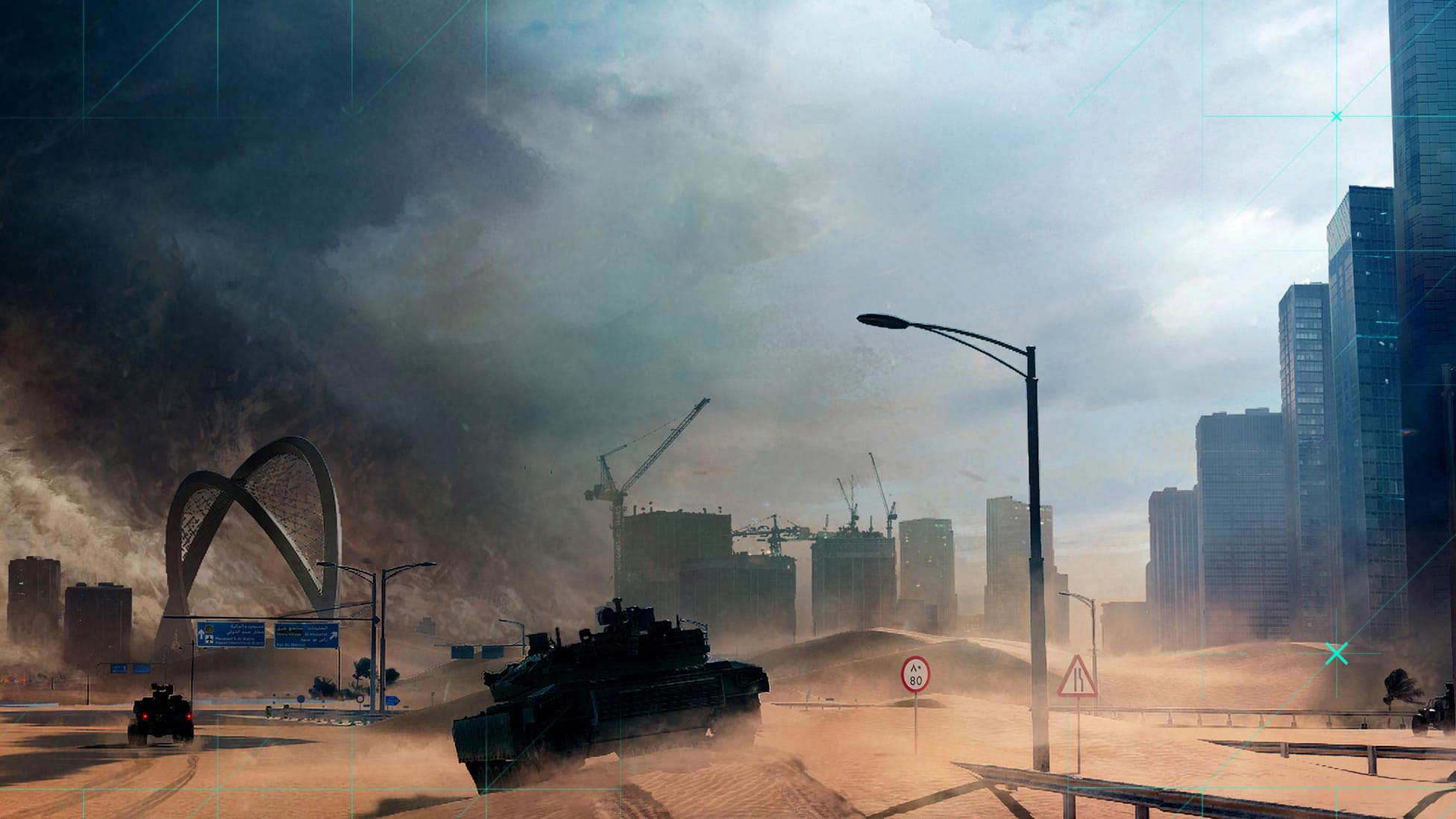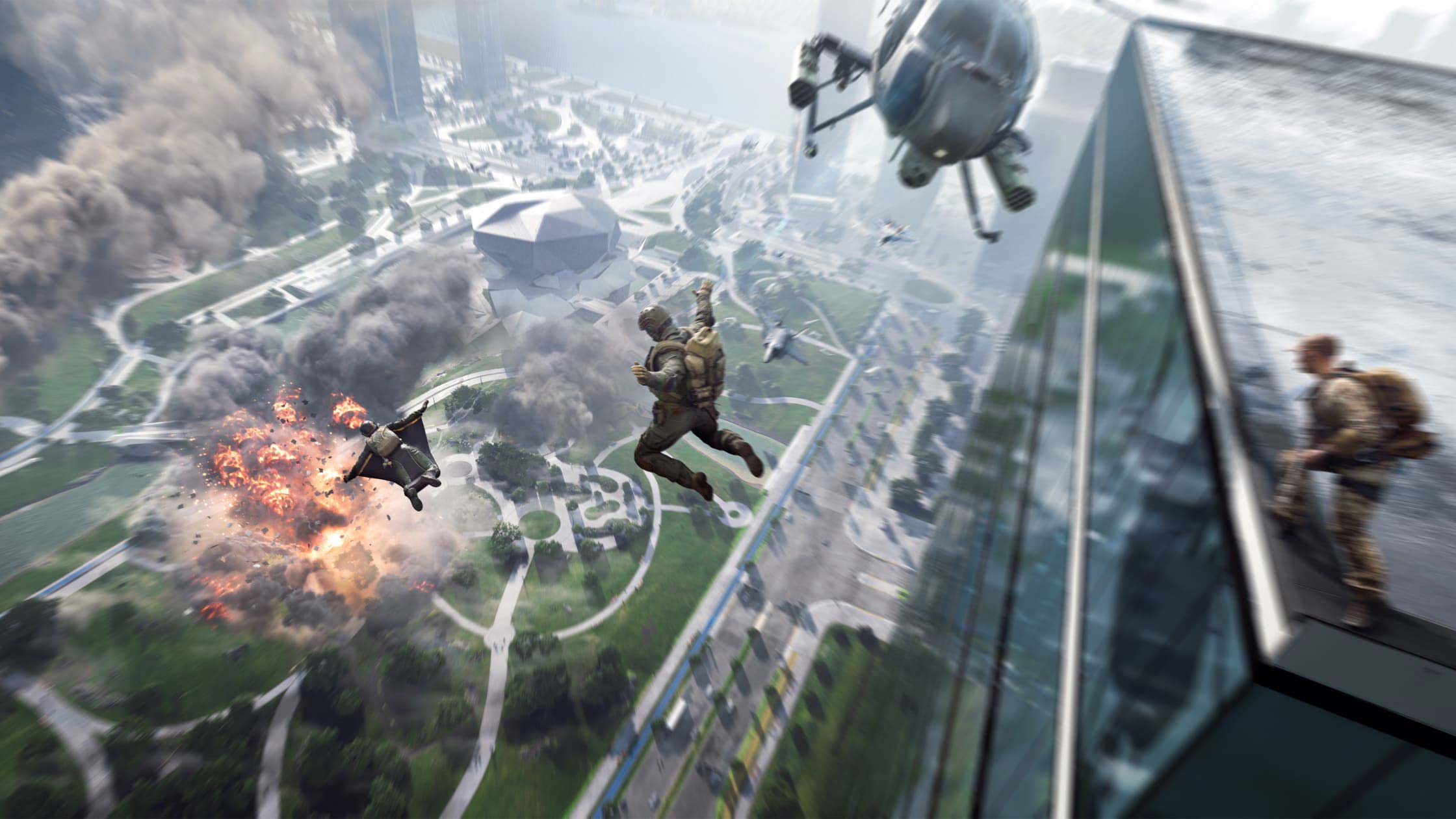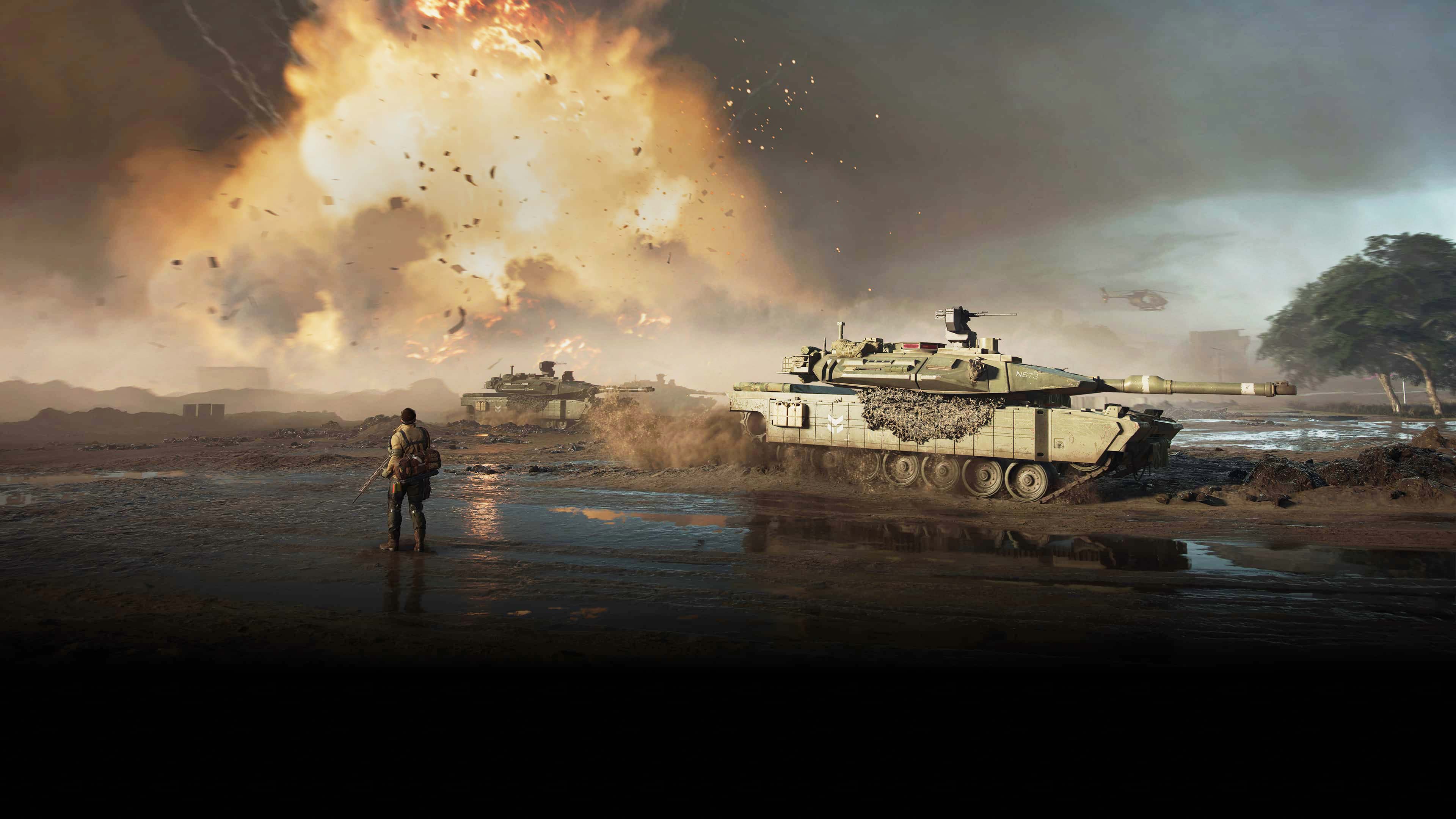Why I'm worried about Battlefield 2042 — and what DICE can do before launch
Excitement about BF2042 is reaching a fever pitch but some pre-launch concerns remain

Sign up to receive The Snapshot, a free special dispatch from Laptop Mag, in your inbox.
You are now subscribed
Your newsletter sign-up was successful
Lace your boots and start training because Battlefield 2042 launches on October 22. In the meantime, EA is doing all it can to get gamers to enlist by bombarding them with trailers, teasers, news and Q&A sessions. Put simply, there is a lot going on with Battlefield 2042 to the point where it's getting difficult to keep track of all the features and modes. These dense supply drops of info can be partly attributed to the ambition of DICE's next first-person shooter — even without a campaign, BF 2042 is poised to be the biggest, boldest entry in the popular franchise.
As my colleagues wait for the launch of Halo: Infinite or Horizon Forbidden West, I spent nights playing Battlefield 4 or Battlefield V to brush up on my tactics and gameplay. I started my post-Nintendo gamer journey with Battlefield 1942 then spent hours playing Battlefield 2, my favorite entry in the franchise. Subsequent games have had their ups and downs, but from what we've seen so far, Battlefield 2042 is on a warpath to re-establish itself alongside the Call of Duty franchise.
- Best PC games in 2021
- Halo Infinite: Release date, features and more
Battlefield fans have a lot to be excited about going into November, but I worry about some of the major changes coming to the franchise. My concerns are less about the core aspect of the game (graphics, gameplay, etc) and more about focus, balance and stability.
AI without intelligence
Firestorm wasn't a bad battle royale. What killed the mode were the brutal wait times that often extended upwards of ten minutes. The problem was simply that it arrived too late and not enough people were around to give it a chance. DICE learned from its mistakes and plans to fill Battlefield 2042 servers with AI. Part of me thinks it's a smart move. There's nothing more frustrating than a long wait to start a game and back-filling open slots with AI is a surefire solution.
Problems could arise if these bots do more of getting in the way than putting up a real challenge. Nobody wants to get caught off guard by a veteran player while clearing out a hoard of useless AI. DICE doesn't have a great track record for AI, with those in Battlefield 1 being aptly described by Polygon as "brain-dead." Fortnite was harshly criticized for adding unskilled bots to its immensely popular Battle Royale and Battlefield 2042 would do well to learn from those mistakes.
The proper use of bots is adding them to beginner servers so newcomers aren't overwhelmed, or to empty servers to decrease wait times. EA has addressed this concern by creating a cap on the number of AI soldiers appearing in Conquest and Breakthrough. The company also promises that there won't be more AI soldiers than players unless a match is filling or "almost empty." There won't be an option to turn off AI altogether, so let's hope DICE finds the right balance between players and AI.
Finding balance amid the chaos
At first blush, Battlefield Portal looks like the most epic, ambitious project in the franchise's history, and a way to preserve and revisit the best elements of past games. So, what could go wrong? Well, several elements need to work together for Portal to be a success. For one, enough players need to buy into the server creation tool, which needs to be easy-to-use and stable.
Sign up to receive The Snapshot, a free special dispatch from Laptop Mag, in your inbox.
Then enough people need to be searching for servers on Portal for those maps to be filled. And remember, maps go up to 128 players and EA won't put a majority of AI into a map unless it's empty. Then there is the question of balance. Portal will include content from Battlefield 1942, Battlefield Bad Company 2, Battlefield 3 and Battlefield 2042.
Seeing a World War II soldier fight against a futuristic one made for a great trailer, but it has me wondering how DICE will keep things balanced. I certainly wouldn't want to be carrying an M1 Garand in a one-on-one fight against an enemy with a Scar-H.
I'm also interested to see how DICE presents the rules for each server. From the sounds of it, people can make dozens of tweaks to create a completely custom experience. How that information is presented to players will be critical — you don't want to jump into a vehicles-only match when you're searching for an infantry-heavy round.
Clearly, Portal isn't about creating balanced gameplay — your creation can be as wacky and wild as you like. The mode will undoubtedly create some "Only in Battlefield" moments that'll generate millions of views on Twitch, YouTube and other platforms. That said, at some point, the team running into a gunfight with a defibrillator will get tired of dying and go back to playing Conquest.
Specialists throw a wrench in the formula
The most common complaints circulating through social media revolve around Specialists. Some feel EA and DICE are adopting popular trends (set by Apex Legends and Overwatch) instead of sticking to their guns. Others have more concrete fears about how the Specialists could compromise the Battlefield formula.
As a reminder, Specialists replace the traditional Recon, Engineer, Medic and Support classes with named characters who possess one unique trait and specialty. And those abilities are all that separate the different specialists because the rest of the loadout is fully customizable.
Of the concerns I've listed so far, the new specialist system is the least of my worries. The four specialists arriving at launch mirror your traditional classes — Flack, the medic, has a healing pistol and revive trait; Casper, a sniper, has a recon drone and movement sensor ability, and so on. The only difference now is that you aren't locked into using one weapon type. Before, most players chose a class based on the available guns. The specialist system flips the script and encourages choosing a class for its abilities.
That seems fine on the surface, but problems could arise if DICE isn't careful about the traits and specialties it adds. The worst-case scenario is one specialist being overpowered, and since weapons are no longer locked in classes, there would be no incentive to use anyone else. This would result in what many people already fear — a server filled with characters that all look the same. Aesthetics troubles me less than the unpredictability this new system could create. Before, you knew that someone with a sniper rifle may have placed a claymore nearby; now, with every weapon being available to every specialist, that level of tactical knowledge is no longer useful.
A history of bug infestation
Battlefield 4 has enjoyed an influx of players since the teaser for Battlefield 2042 dropped, but things weren't so rosy when the game launched. Technical glitches steered players away and eventually led to various lawsuits against EA. One year after the release of BF4, DICE LA producer David Sirland admitted the botched launch "absolutely" damaged player trust.
To DICE and EA's credit, subsequent launches in Battlefield 1 and Battlefield V fared better, but the damage was done. With the scope of Battlefield 2042, one can't help but get flashbacks to glitchy servers, unusable squad creation and game-breaking bugs.
More excitement than panic
Battlefield 2042 is already locked and loaded in my digital shopping cart; all that's left to do is decide which pre-order tier to buy. I know I've spent some 1,000 words going over ways the game could fail, but these worries do little to temper my excitement. Barring technical glitches — and that remains a very real concern — Battlefield 2042 is set to give first-person shooter fans a unique experience founded on the pillars that have kept the franchise fighting for so many years.
Large diverse maps, 128-player matches, dynamic weather, destructibility and new game modes are just a few of the reasons to be excited for Battlefield 2042, not to mention the graphics on next-gen consoles. Not every new feature will be a resounding success and DICE will need to do some tinkering post-launch to address those issues. But regardless of what sticks and what doesn't, Battlefield 2042 will bring players back to the (post)modern era in larger-scale battles than ever before.
Phillip Tracy is the assistant managing editor at Laptop Mag where he reviews laptops, phones and other gadgets while covering the latest industry news. After graduating with a journalism degree from the University of Texas at Austin, Phillip became a tech reporter at the Daily Dot. There, he wrote reviews for a range of gadgets and covered everything from social media trends to cybersecurity. Prior to that, he wrote for RCR Wireless News covering 5G and IoT. When he's not tinkering with devices, you can find Phillip playing video games, reading, traveling or watching soccer.




